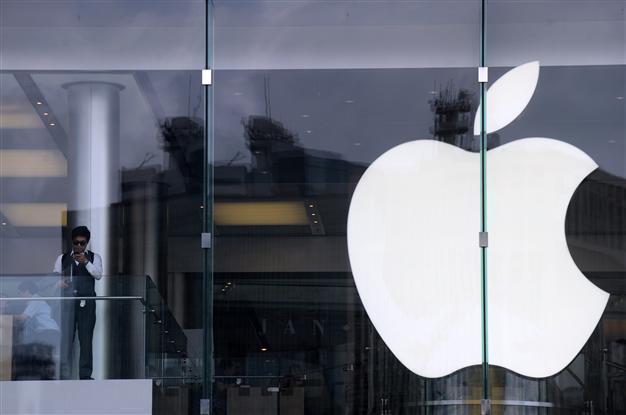Apple launches iTunes Store in 12 new Asia markets
SINGAPORE - Agence France-Presse

AFP photo
Apple launched its iTunes Store in 12 Asian markets on Wednesday, giving consumers access to millions of songs and movies, but regional giants China, India and Indonesia were not on the list.The move by California-based Apple, which has sold more than 16 billion songs worldwide on the online store, enables it to make more money from digital content in markets where its devices have become hugely popular.
Asian musicians would also benefit from having a secure new platform to sell their work to local fans in a region rife with intellectual piracy.
"What took them so long?" said Chen Wei Li, a 28-year-old Singaporean who owns an iPhone, iPad and MacBook Pro laptop.
"I personally am looking to download some music off the iTunes store," he added.
The iTunes Store is now open to consumers with credit cards issued in Brunei, Cambodia, Hong Kong, Laos, Macau, Malaysia, the Philippines, Singapore, Taiwan, Thailand, Sri Lanka and Vietnam.
It was already available in Japan, Australia and New Zealand.
Customers will now be able to choose from more than 28 million songs, including hits by Asian stars. They will also be able to rent or buy movies from studios such as 20th Century Fox, Paramount, Universal, Disney and Warner Brothers.
"We know that people will pay for content if they are able to access good services," said Jasper Donat, the Hong Kong-based president of Music Matters, an annual gathering of executives from the music industry in the Asia-Pacific region.
"Having promoted the Asian music industry around the world for nearly eight years, we are genuinely excited about today's iTunes announcement and look forward to welcoming more digital entertainment platforms and services to the region soon." But China, India and Indonesia -- the three most populous Asian countries -- were notable omissions from Wednesday's launch.
"We're always working to bring the iTunes Store to more customers around the world, as conditions permit," Apple said in a written reply to AFP when asked why China and India, which have a combined population of 2.5 billion, were not yet included.
Neha Dharia, a Mumbai-based analyst with business research firm Ovum, said several criteria including support for intellectual property rights are considered by Apple before opening up the iTunes Store to any market.
"These include the adoption of Apple devices, consumer preferences for digital distribution of content, ability to forge partnerships for procuring local content and, of course, levels of piracy and the measures to combat it," Dharia told AFP.
Apple's Asian expansion, which followed the December launch of the iTunes Store in Brazil and 15 other Latin American markets, now makes commercial sense despite concerns over piracy, another analyst said.
"Up to a certain point, piracy in the whole region was something they were looking at with a critical eye," said Melissa Chau, a Singapore-based regional research manager with US market intelligence firm IDC.
"But what has changed in the last couple of years was how popular iPads and iPhones have become in this region.
"It makes sense for them to capture revenues from these users who have iPads and iPhones." Apple is estimated to have shipped 35 million iPhones and iPads in the Asia-Pacific region excluding Japan in 2011, Chau said.
"This is the natural evolution of an integrated ecosystem for their own products and services," said Chau.
Apple's latest earnings report showed it made a profit of $11.6 billion on revenues of $39.2 billion in the March quarter, thanks largely to booming demand for iPhones and iPads in Asia including China.
















